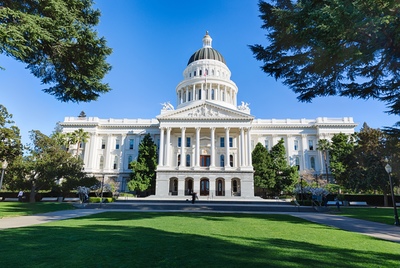
Compliance
Compliance Deadlines for Lobbying and Campaign Finance in March 2026
March 3, 2026 | Megan Zeiss, Vinnie Cannamela

Key Takeaways:
Navigating the complexities of lobbying disclosure requirements across different states can be a challenge even for the most experienced lobbyists. States and localities monitor these filings, checking for inconsistencies, underreported expenses, and late submissions — errors that can lead to fines, public scrutiny, or suspension. Certain jurisdictions even conduct random audits to ensure compliance with state and local laws; these audits often focus on discrepancies in spending reports and undisclosed payments or expenditures. Whether it’s a simple typo or a missed deadline, these can lead to significant consequences, highlighting why compliance must be a top priority for every government affairs team.
All jurisdictions manage lobbying violations differently given that fines, penalty severity, and enforcement practices vary from state to state. For instance, Idaho provides lobbyists a 48-hour grace period after reporting deadlines, after which they incur $50 daily fines until submission. States like Indiana do not offer any grace period and lobbyists are fined $100 per day starting immediately after the filing deadline and continuing until the report is submitted. The consequences of missed deadlines escalate quickly, starting with fines and potentially leading to legal actions under state laws. It's important for lobbyists to keep track of all impending deadlines and avoid any penalties and enforced actions.
If a jurisdiction flags that a registration was submitted late, that jurisdiction will determine when the lobbyists' registration should have been submitted. This can be days, weeks, or months late, causing the lobbyist to pay for the original registration fee, late registration fees, and any late filing fees for reports.
Lobbying registrations and reports are public records, closely monitored not only by state regulators but also by advocacy groups, journalists, and political opponents. In 2024 in Colorado, a lobbyist was fined for violating the state’s lobbying laws by failing to register as a lobbyist and failing to file the disclosure statements required of a lobbyist. The Elections Division confirmed the lobbyist's activities spanned two days and involved just a few hours of actual lobbying, with the evidence obtained from a Facebook video the lobbyist had posted. Cases like this serve as an important reminder that even if you don’t consider yourself a lobbyist or believe your activities qualify as lobbying, the state’s legal definition may differ. Carefully reviewing your state's registration requirements helps prevent penalties, legal repercussions, and potential damage to your organization's reputation.
Submitting registrations on time to avoid late fees and prevent reporting deadline violations is the first step to complying with each jurisdiction’s rules. In Tennessee, state law mandates electronic registration through the Ethics Commission within seven calendar days of meeting their definition of a lobbyist, who is anyone that engages in lobbying for compensation. Lobbying is defined as any activity, direct or indirect, that is intended to influence decision-making in the legislative or executive branches. Once a lobbyist determines their activities meet the state's definitions, they must register immediately to remain compliant with state law.
States differ in reporting requirements. In New Jersey, the state requires lobbying activity, such as listing the bill numbers or description of activity, to be disclosed each quarter. Once a report is filed, the process of reviewing reports by the ethics commissions will focus on discrepancies between reported numbers or mismatching bill numbers and descriptions. The Election Law Enforcement Commission (ELEC) monitors report accuracy and will send lobbyists a mailed notice if an amendment is needed. If the issue continues unresolved, ELEC has the authority to investigate the failure to correct the report, enforcing fines that begin at $50 per day and can go as high as $1,000. In extreme cases, it can lead to legal proceedings against lobbyists. Failure to comply doesn’t just mean monetary penalties; it can land filers on a public list visible to journalists and watchdogs, that could harm the reputation of both the lobbyist and the represented organization.
It’s essential to remember that many jurisdictions have strict reporting deadlines that, if missed, can lead to fines and penalties. Certain states publicize who violates their lobbying laws, whether it be a late report or an incomplete one. In Minnesota, the Disclosure Board publishes a record of lobbyists who are delinquent in their filings. This list provides the names and registration numbers of the non-compliant individuals. Staying on top of jurisdiction due dates is important not just in avoiding financial penalties, but maintaining your reputation. Tracking deadlines for lobbyists can be difficult, especially for lobbyists engaging across several states and different timezones. MultiState’s monthly deadline blog post, featured on our Compliance Insider Newsletter, is one of the many ways we help lobbyists monitor all their outstanding reports to avoid fines and penalties.
Other notable states like Massachusetts enforce some of the strictest lobbying regulations in the country when it comes to accurate reporting and time sensitive deadlines. The state imposes a $50 per day fine for each day a lobbying report is late, with no cap on how high the total penalty can go. The Secretary of the Commonwealth oversees these filings and routinely reviews them for completeness, ensuring that lobbyists and their clients are meeting all disclosure requirements.
New York State ethics officials don't just review submitted lobbyist reports when tracking lobbying activity. They also review media content that can include news articles, press releases, websites, and other public statements to identify individuals or groups claiming to represent a company as its lobbyist or engaging in what could count as lobbying under state law. If they find such activity, it could lead to a closer review to check if registration and reporting rules were followed.
The State of New York also checks local lobbying records from New York City, Nassau County, and Suffolk County. If someone is registered to lobby locally and meets state requirements, they must register with New York State, even if they aren’t lobbying state officials. These measures help ensure transparency is upheld equally across jurisdictions and reduces any risk for oversight failures.
As lobbying regulations continue evolving, professionals must treat compliance as an ongoing priority rather than a one-time obligation. Simple mistakes such as incorrect dates, misreported expenditures, or missed filings can trigger enforcement actions and lead to serious penalties. Staying updated on state rules requires ongoing training, expert advice, and keeping track of changing laws and regulations regarding lobbying requirements.
Keeping up with rules, deadlines, and often confusing requirements is a daunting prospect for teams of all sizes. Let us manage your federal, state, and local registration and reporting responsibilities, or manage your Campaign Finance program. Read more about our Compliance Services here, or get in touch here.

March 3, 2026 | Megan Zeiss, Vinnie Cannamela

February 20, 2026 | Bradley Coffey
-328a36-400px.jpg)
February 20, 2026 | Kelly Cox